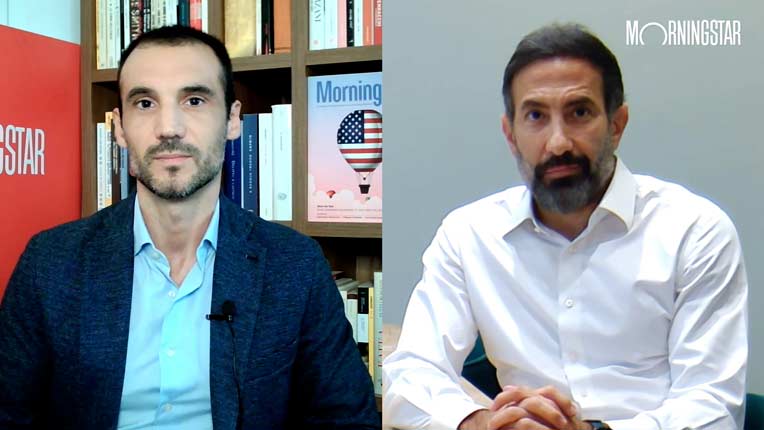Morningstar's "Perspectives" series features investment insights from selected third-party contributors. Here, Oliver Bell, manager of the T. Rowe Price Africa & Middle East Fund and T. Rowe Price Frontier Markets Equity Fund reports from Pakistan.
Contrary to the negative headlines we often see in the press, you get an entirely different perspective on Pakistan when visiting the country.

Pakistan stands out among Asian frontier markets

Pakistan has been slowly progressing on a much more stable path, and this has been rewarded with better returns for equity investors. Pakistan was actually the third best-performing stock market in the Asia-Pacific region in 2014. Much of this has been down to the real sea change we have been witnessing in the country.
Over the last few years, there has been a dramatic change in the political landscape. We have had for the first time a government completing a full term, the first time since independence 67 years ago, while the transfer of power to the opposition was also handed peacefully. Importantly, stability within the political landscape has led to a stability of economics and commitment to adhere to an International Monetary Fund programme.
This means we are dealing with a country that is lowering its budget deficit, privatising state-owned assets and starting to tackle energy shortages; all meaningful milestones for international investors.
As part of the IMF program, it has committed to a very aggressive, almost unprecedented privatisation program. In June 2014, Pakistan experienced its first privatisation in seven years, with the sale of 19.8% of United Bank. There are also other major plans for 2015.
Meanwhile, the country is also embarking and prioritising on a massive restructuring and privatisation of its power sector, which is much needed to unleash Pakistan’s economic growth. After slumping to less than 3% from 2007 to 2011, economic growth is steadily rebounding and is estimated at 5.5% this year, but this could be much higher if structural changes continue.
The fall in oil and other commodities is also providing a further tailwind to the economy. This has had a knock-on effect to inflation, with the rate dropping quite sharply in recent months, and is now at an 11-year low.
On the back of lower inflationary pressures, Pakistan's central bank cut its key discount rate to 8.5% in January and a further 50 basis points reduction in March to 8%. Encouragingly, we are expecting more to come if inflation remains anchored at these lower levels.
Positive Demographics and Most Liquid Market
Pakistan’s 186 million population is the largest among frontier markets, and the sixth largest globally – after China, India, US, Indonesia and Brazil. A 9% weight in the MSCI Frontier Markets Index ranks Pakistan third by weight, after Kuwait and Nigeria, making it the largest oil-importing country in the index.
With 560 companies listed, the $77 billion market cap Karachi Stock Exchange trades $150 million daily, giving Pakistan the most liquid equity market among countries in the MSCI Frontier Markets index. The market’s free-float is approximately 33%, with around 35% of the free-float owned by foreigners.
Although improving, it is however important to remember that Pakistan has had a chequered past, and therefore caution is always necessary. The government of Prime Minister Nawaz Sharif, which came to power in 2013, is still under pressure to do more to revive the economy, solve crippling power shortages and create more favourable conditions for badly needed foreign investment.
However, along with Sri Lanka, Pakistan stands out among Asian frontier markets as much of the bad news is already embedded in valuations. Recent gains have moved that forward P/E onto 9-times, but this still remains very favourable versus other frontier, emerging and developed markets.
The opportunity set in Asia, as with other frontier markets, is majorly focused on the financials sector. There are many banks trading at high single-digit to low double-digit levels when considering forward looking price-to-earnings ratios.
Many frontier banks are also generating exciting, but also sustainable, return on equity levels. Twenty per cent per-annum growth is not uncommon, especially in Pakistan and Sri Lanka.
In Pakistan, banks had been in a de-leveraging cycle for almost five years up until the summer of 2014. This has reversed sharply and loan growth has now picked up, into double-digits in some cases, as corporates have started to re-leverage. This is now coming through strongly in profits growth.
Overall, Pakistan and other markets in the Asian frontier region are becoming more important to investors. Positive demographics and low credit penetration levels provide a robust backdrop for investing.
Morningstar Disclaimer
The views contained herein are those of the author(s) and not necessarily those of Morningstar. If you are interested in Morningstar featuring your content on our website, please email submissions to UKEditorial@morningstar.com.





























